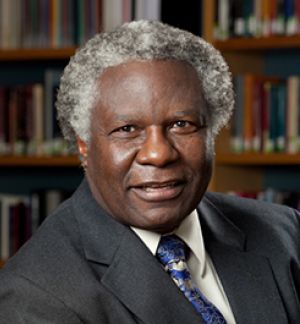In a landmark referendum, Kenyans have overwhelmingly voted against the draft constitution. The results have sent seismic waves across the political landscape and will shape the democratic future of the country for a long time to come. President Kibaki has responded by dissolving the Cabinet.
Avoiding catastrophic aftershocks from the referendum will involve rallying the country around an aggressive work programme that promotes economic renewal and regional integration. Creating an entrepreneurial state that opens up economic opportunities for all is the most urgent challenge for Kenya and the region.
Experimenting with constitutional reforms is an important starting point in enlarging basic freedoms. But it will do little to expand economic opportunities if the colonial state continues to serve as a dogmatic unit of political governance and economic activity.
Poor governance and lack of access to international markets have been used to explain Africa’s lacklustre economic performance. These are important factors, but the current states are simply not viable entities and therefore more difficult to govern.
Moreover, their governance structures are ill-adapted to the modern world. While Asia and Latin America have advanced, African countries continue to miss strategic opportunities largely because of their fragmentation.
Take the issue of information technology as an example. Much of the world is reaping dramatic benefits from expanding connectivity. But Africa still lags behind partly because of fragmented markets, diverse technical standards and limited capacity to share development lessons across the boundaries.
Nations with greater internal diversity have a better chance to adapt to a rapidly changing world. African countries are too small to provide that adaptive diversity. Their dependence on raw materials for economic output further undermines their capacity to respond to global economic demands.
Artificial barriers arising from colonial days inhibit regional trade. As a result, these countries do not the opportunity to learn to trade locally because they can go global. Regional trade will help Africa to benefit from the large pool of industrial technologies available worldwide. Large markets will also help the region negotiate better terms for technology acquisition.
There is good news on both international and regional fronts. The growing interest among enlightened industrialised countries to expand export opportunities offers an important starting point. The growing focus on trade rather than aid will require Africa to enhance its competitiveness through innovation and product development. Regional markets will be the best test bed for this.
But change must start at home and Kenya has a unique opportunity not only to focus on national development, but also to provide leadership in promoting regional integration.
First, Kenya’s Cabinet structure needs to be brought in line with economic imperatives. The traditional practice of selecting ministers on the basis of ethnic balancing should be abandoned and the choice should be based strategic development priorities.
The management of the economy must be the central concern of the executive branch in general and the presidency in particular.
More critically, the presidency needs to be regularly advised on the best available options for stimulating economic growth. Kenya has a variety of advisory organs that need to be streamlined to help the presidency focus on economic matters.
There are critical areas such as infrastructure development which need high-level coordination and management. The office of the vice president, for example, could play a key role in coordinating infrastructure-related planning and implementation.
Today, this office carries out assorted functions that do not reflect national priorities and easily be managed by other departments.
Urban centres are the locus of much of the country’s economic output. It is estimated that Nairobi accounts for about 60 percent of Kenya’s economic output. But the city is not managed as a strategic economic interest but continues to languish under an outmoded governance structure.
This has to change and the city must serve as an economic hub and role model for the rest of the country and region.
It is also evident that creating opportunities for business development and technological innovation as well as related activities such as international trade will make significant contributions to human welfare. It is, therefore, urgent for the government to create incentives that encourage business development and to provide for this in a new cabinet structure.
The role of higher technical training is a critical input into economic growth. More specifically, institutions of higher learning should realign their curricula and pedagogy to support community development in their localities.
Decentralising governance without equipping districts with access to higher technical education and the associated business incubation activities will only add more bureaucratic burdens on the poor.
Creating an entrepreneurial state will take opportunity, political courage and vision. Kenyans have sent President Kibaki to the drawing board and he has less than two weeks to create a new template for the country and region.
Prof Juma teaches international development at Harvard University’s Kennedy School of Government.
|
|
|
|
Juma, Calestous. “Go for Innovators, Not Tribal Chiefs.” The Daily Nation, November 26, 2005





